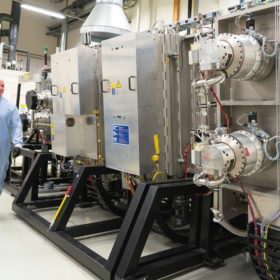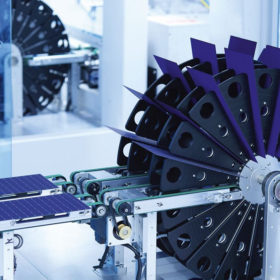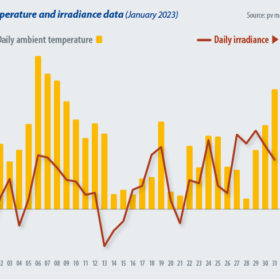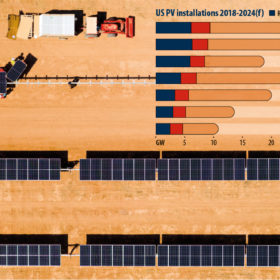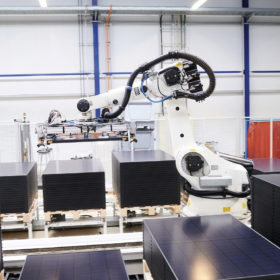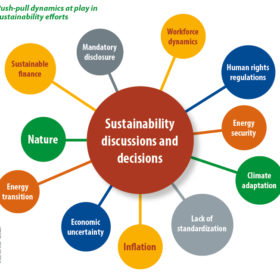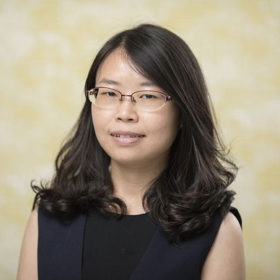Industry and researchers in tandem
As efficiency records tumble and devices become more stable, Europe is seeing the beginnings of a race to commercialize high-efficiency perovskite-silicon tandem solar products, reports Valerie Thompson.
Breaching the 25% barrier
The stuff of fantasy and research institutes just a handful of years ago, 25%-plus efficient PV cells are now a commercial reality, which Chinese heterojunction (HJT) solar company Huasun proved by securing the 2022 pv magazine Award for modules. Huasun R&D technical specialist Zhou Su sat down with pv magazine to discuss the achievement.
pv magazine test; January 2023 results
We present the energy yield results for January 2023 from our outdoor test field in Xi’an, China, with analysis from George Touloupas, the senior director of technology and quality at Clean Energy Associates (CEA).
Solar cars: Lightyears away?
The integration of solar cells and vehicles looks like a sure bet for the future of cars, buses, and trucks. But for startups that have bet on making solar a feature of their electric vehicles (EVs), times are tough, reports pv magazine’s Tristan Rayner.
A moral trilemma
US solar was disrupted in 2022, with module seizures delaying projects due to strict laws designed to stamp out alleged forced labor practices in sections of the Chinese PV industry. However, it remains to be seen whether seizures affected such alleged practices.
Haiti hopes
When Brighten Haiti was launched in 2020, the challenges facing schoolchildren in the Caribbean country were profound. While the organization and its 2022 pv magazine Sustainability Award-winning Solar4Schools program are set to address some issues, the security and economic situation in the nation has deteriorated even further, as Brighten Haiti founder Kevin Keene told Jonathan Gifford.
Out of the starting blocks
The EU is finally pulling together a response to US President Joe Biden’s Inflation Reduction Act (IRA), and the financial support promised – plus a mooted premium-quality label for European solar products – might just get Europe back in the race, as SolarPower Europe’s Dries Acke reports.
Conflicting reports
Environmental, social, and corporate governance (ESG) reporting is becoming more commonplace for solar and energy storage companies, and that can mean conflict with wider economic and political dynamics.
Final thought: Solar cells trend to new standards
by Yali Jiang, senior associate for solar insight at BloombergNEF.
